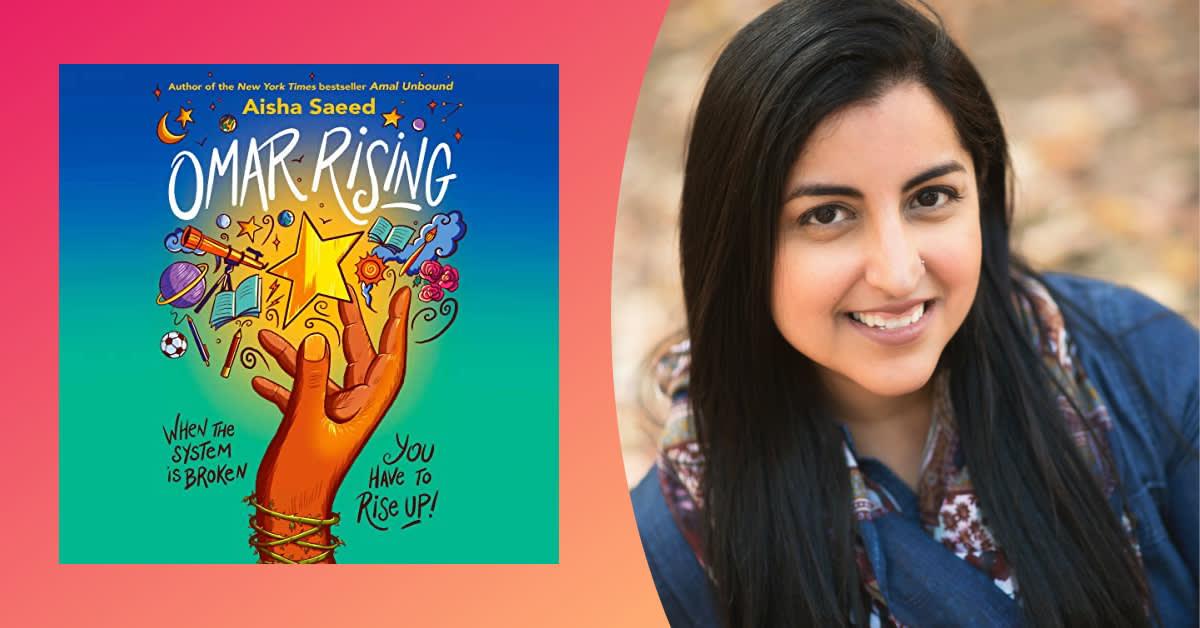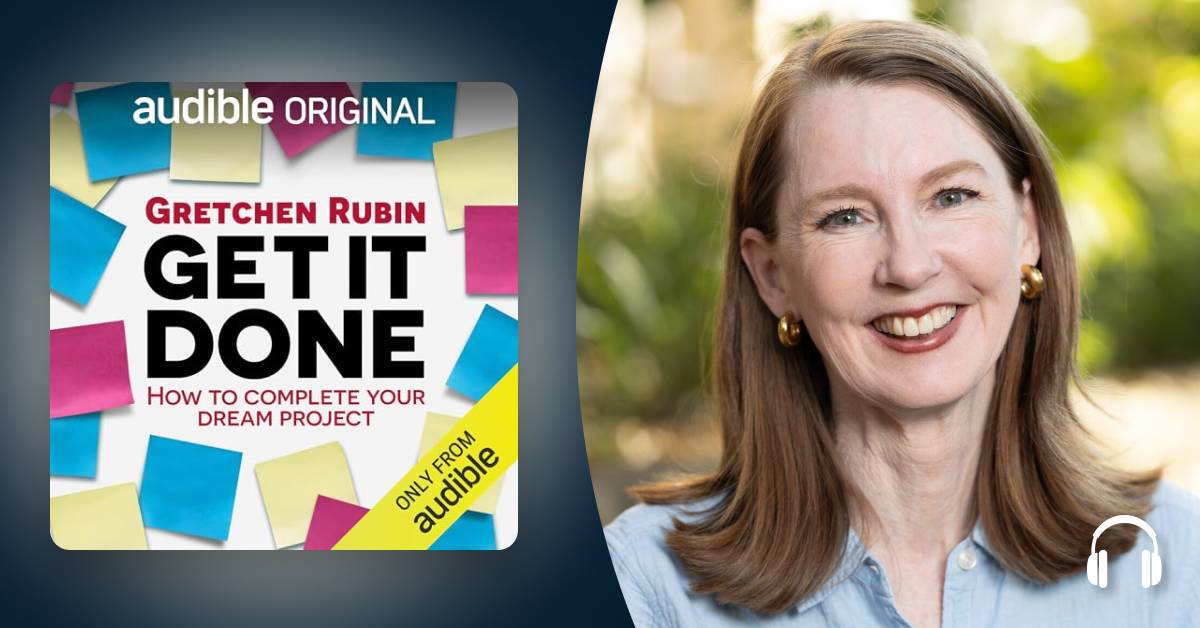The young people in Aisha Saeed’s beloved novels are so authentic and accessible because as the story is unfolding, she’s listening to them as they unwittingly guide her. The result is a sense of community that reflects real lives—their challenges and victories—and delights listeners from middle grades to YA. Her newest audiobook, Omar Rising follows a precocious young boy who won’t settle for second-class treatment at his elite new boarding school and finds purpose in the idea of being “stubbornly optimistic.”
In this interview, Saeed tells us more about her writing technique, and why she writes what she writes.
Omar relates to being called “stubbornly optimistic”—and ends up using that as a personal rallying cry. What appealed to you about this phrase?
The phrase “stubbornly optimistic” is coined by Shehzil Malik, the artist behind the covers of both Omar Rising and Amal Unbound. Her life and her work serve as a source of inspiration for Omar as he struggles to succeed at a competitive boarding school. Years earlier in an interview, Shehzil shared the importance of stubborn optimism to instill change. This resonated with me because, while hope is important, the stubbornness to stick with what one is hoping for is critical as it can often feel easier to give up on one's dreams in the face of hardship. Staying stubborn and holding on to hope is a powerful way through.
Omar Rising and Amal Unbound include a setting that will be new for many listeners: a village in Pakistan. Throughout both stories, there isn’t exposition about the locations, culture, or foods—everything just IS. How intentional is this? Might it help listeners relate to what’s familiar rather than focusing on what’s different between their lives and Omar and Amal’s?
Amal Unbound and Omar Rising are both set in a fictionalized version of my ancestral homelands in the Punjab region of Pakistan. My grandparents on both sides were farmers. Like Amal’s family, they grew sugar canes and had citrus groves. My fondest memories are playing hide and seek in the sugar cane fields with my cousins or heading to the market to buy a kulfi or candy. Growing up, none of this was “other” to me. It was part and parcel of my life. It simply was. In my stories set in Pakistan, I intentionally frame them the way I grew up experiencing them, as matter of fact—because they are. I believe seeing oneself in a book without explanation or justification is life-affirming. And I hope that readers and listeners outside the culture will see the common threads of humanity, such as family, friendships, and community, that bind us all together.
Omar is awarded a scholarship entry to a boarding school—he’s a smart kid with good friends and the support of his community—but over time, he realizes how unjust things are for scholarship students and wants to change that. Did you know when you began telling Omar’s story that he was going to turn into an activist—that this would be a story of social justice?
My characters share with me who they are as I write them, which is one of the most amazing parts of writing for me. I’ve learned not to plan too far in advance how a story will go and who they will be because the writing unveils layers I could not have expected when I first sat down to write. When I began working on Omar Rising, I wanted to explore how he would cope with being away from home and the enormous expectations placed upon him in this brand-new schooling environment. As the story continued to evolve, it became clear that activism would play an important role to help Omar to find his way through. As much as this story is about social justice and activism, it is also a story about community and the way both justice and community and advocating for one another is the surest way to bring us closer together.
Omar Rising is narrated by Vikas Adam. Did you have any involvement in his casting, and what was it like hearing him as Omar?
I feel so grateful to have worked with such fantastic narrators for my books. Audiobooks are on the rise these days, and for good reason! They bring a story to life in such a unique way and transform a road trip or washing the dishes. And for young readers, having multiple access points for engaging with books is critical. When it was time to select a narrator for Omar Rising, Vikas Adam was my top choice to narrate the story. I’ve listened to other stories he’s narrated and his ability to perform different voices, the emotions he inflects throughout, is outstanding. His voice simply sounded like Omar, and he captures the highs and lows and Omar’s boyish charming spirit wonderfully. I could not be more pleased with the results!
Has your work with We Need Diverse Books changed your storytelling? Do you think about your audience in a different way?
I am incredibly proud of being a founding member of the nonprofit, We Need Diverse Books. We all came together to work on this organization because we grew up never seeing ourselves in stories and understood the impact such an absence can have on a young life. We Need Diverse Books does incredible work to promote diverse stories and authors and to change the landscape of publishing for the better. I was already publishing a story about a Pakistani American teen (Written in the Stars) when WNDB was founded, and I’m grateful all these years later that I can continue to write stories that reflect my heritage, both for my kids and for all kids.







